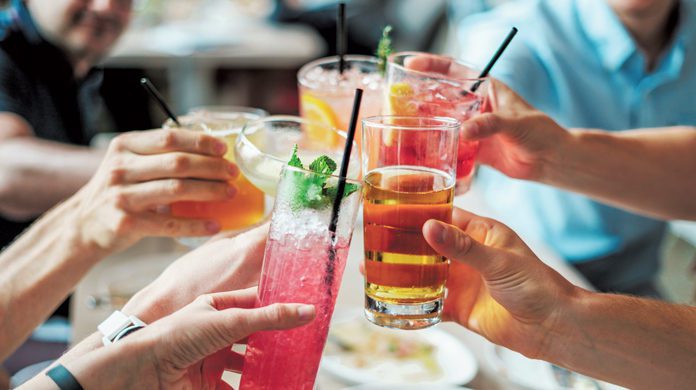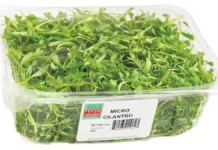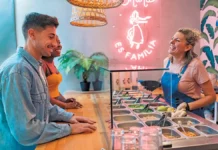
Every day, almost 29 people in the United States die in alcohol-impaired vehicle crashes, according to the National Highway Traffic Safety Administration (NHTSA). Not only are the drunk drivers liable for their actions, the establishments where they were drinking are also susceptible to punishment for over-serving clientele who then injure a third party.
These types of lawsuits could financially cripple an establishment. “Dram shop” laws are enforced through civil lawsuits, allowing victims of alcohol-impaired vehicle crashes or their families to sue alcohol vendors or retailers for monetary damages. One high profile case involved a New Jersey jury awarding $135 million to the family of a girl who was paralyzed after a drunk driver collided with the car in which she was riding. It was determined that the concessionaire at Giants’ Stadium shared the liability for the victim’s serious injury.
Establishing a liquor liability prevention policy, training workers and transferring risk are critical to protect your establishment, employees and patrons from liquor liability.
Prevention Through Education
The most important defense against liquor liability is prevention through education. It is imperative that you design a liquor liability training program for staff members who will serve alcoholic beverages to customers. In these training sessions, employees will learn important information such as how to determine if someone has had too much to drink, how to deny a patron service and how to identify valid forms of identification to prevent serving alcohol to minors. Once an employee has completed the training, he or she should sign an agreement form outlining that they comply with and understand the policies set forth by the establishment.
Specifically, training should include the following:
Signs of intoxication: It is important that employees learn to recognize the signs of intoxication, which include:
- Slurred or slow speech
- Tendency to lose a train of thought easily
- Red eyes or inability to focus
- Decreased alertness
- Staggering or inability to walk
- Inhibited motor skills
Monitoring consumption: Teach your staff how to recognize when patrons have had too much to drink. The SMART (Server & Managers Alcohol Responsibility Training) program suggests using the traffic light system, rather than counting how many drinks a guest has had, is more effective in monitoring how much a guest is drinking. Here’s how it works:
- Green: The patron shows no sign of impairment, is in a good mood and is not drinking rapidly.
- Yellow: The patron is not yet intoxicated, may be drinking quickly, may be either in a “down” mood or out to celebrate, and may be showing some signs of impairment. Your goal is to stop serving before a guest is intoxicated, so serve this guest with caution.
- Red: The patron shows signs of intoxication, may be in a depressed or aggressive mood, is drinking fast, and seems intent on becoming drunk. This guest should not be served alcohol.
Other effective training programs include TIPS (Training for Intervention Procedures) and TAM (Techniques for Alcohol Management). Designed to prevent severe intoxication, underage drinking, and drunk driving, participating in such training programs can protect servers and establishments against liability.
Offering continued service: Encourage employees to serve customers diligently. This does not mean replacing a drink as soon as an older one is being finished. Instead, employees should conduct friendly conversation with patrons, suggest food items and slow down the service while engaging in conversation. In the event an employee must cut off a patron; they already have an established relationship. The patron may take what the employee says to heart and may not become angry or violent when asked to stop drinking.
Denying service: As part of the liquor liability training program, establish a policy for how to deny patrons service when they have had too much to drink. Be sure to include the following steps in your policy:
- Be polite and offer non-alcoholic beverages or food alternatives.
- Avoid threatening statements, and place the focus on the server by explaining that they could lose their job if they continue to serve the patron.
- Offer to call a taxi or friend to drive the patron home.
- Use a firm tone and do not back down if met with resistance.
- Remain calm and in control of the situation.
- Require that employees seek out a manager’s assistance immediately upon confrontation while trying to deny a patron service.
Reporting incidents: After an incident has occurred, it is necessary that employees fill out an incident report. Specifically, make sure that employees note the name of the intoxicated patron, witness testimony and a detailed description of the incident, including mention of any fights, refusal to serve, and use of a false ID or patron ejection. This helps to reduce your liability in the event of an alcohol-related incident.
Employee Legal Consequences: As part of your initiative to lessen risks, educate employees on how intoxicated patrons may impact their lives. Employees must understand how serving to minors who use fake IDs will result in large fines, and that breaking dram shop laws may pose serious consequences. Remind employees that they are liable and could face a number of consequences for not cutting off patrons before they’ve had too much to drink. Types of employee liability include criminal liability, civil liability and dram shop laws.
Transferring Your Risks: To protect your business, it is extremely important to obtain a liquor liability insurance policy either as stand-alone coverage or as part of a restaurant and bar package policy. Speak to your insurance broker for more information about these coverage options. A good broker should understand carrier requirements and the state’s dram laws to design a policy that best suits your needs.























